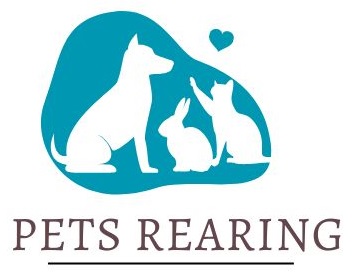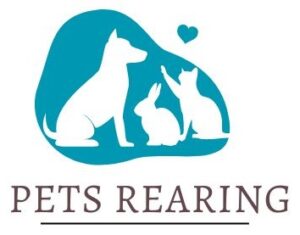As a caring pet parent, you’ve likely heard about the benefits of omega-3 fatty acids; nonetheless, you might be wondering how exactly they positively impact the dog’s coat and skin. These essential fats are not just the new hottest things in super-premium pet foods; they’re powerful nutrients that play a vital role in your dog’s overall health. Whether you are looking for grooming products, supplements, or veterinary supplies, knowing omega-3’s part in your pet’s skin and coat health will enable you to buy more wisely for them.

Just go ahead and read the information, extracting only the most important points for you and your wagging friend.
What Exactly Are Omega-3 Fatty Acids, and Why Do Dogs Need Them?
Omega-3 fatty acids are a group of polyunsaturated fats that your canine’s body is incapable of creating. In other words, they have to be provided through diet or supplements. The most valuable omega-3s for dogs are EPA (eicosapentaenoic acid) and DHA (docosahexaenoic acid), which are usually obtained from fish oil, krill oil, or algae. These nutrients are popular for their anti-inflammatory properties, thus especially good for use in dealing with allergies, dry skin, and dull coats. Besides skin and fur, omega-3s also promote joint health, cognitive function, and even heart health. Introducing them into your doggy’s daily routine is an easy step with profound consequences.
Say Goodbye to itchy, Dry Skin
Omega-3s have a very positive impact on the skin. Itchiness and irritations are greatly eased by consuming omega-3s, and these are one of the most visible improvements. Most dogs suffer from allergies, which may be food or environmental causing, leading to excessive scratching, biting, or licking. Omega-3 fatty acids by their anti-inflammatory effects at the cellular level, can control these symptoms, and as a result, the pet feels much more comfortable. Aside from medical shampoos or prescription drugs, omega-3s offer a convenient and cost-effective way to soothe your dog’s irritated skin. they create noticeable, gradual improvements that work from the inside out as they operate from the inside to moisturize, soften, and remove the skin from the itch—especially in the season of the allergy or where the air is dry.
A Dog’s Coat That is Shinier and Softer, Which Both of You Will Like
A dog’s coat is normally the first thing people see, and it is a good determination of his overall health. A dry, brittle coat is a sign of low nutrition, allergies, or unseen medical problems. Omega-3s act as a hair mask naturally, boosting the skin’s production of natural oils, and keeping the skin of dogs moisturized, resulting in shinier fur. It is not only about hair looking good – the health of the fur is a mirror of skin health. When skin is well-fed and hydrated, the fur will be well-nourished and visibly shinier. Several pet owners realize the prettier state of their dog’s hair is the result of two weeks of omega-3 supplementation.
Omega-3s Can Be a Game-Changer for Dogs with Skin Conditions
Your veterinarian informed you that your dog has a skin condition, such as seborrhea, hot spots, or a chronic dermatitis; in this case, omega-3s may be an essential part of their treatment. The omega-3s not only reduce the inflammation, but they also help the skin recover, and the symptoms are gone. Moreover, if a sick dog continues with ointment application or medicated baths, adding omega-3 fatty acids to their treatment plan can enhance results. A lot of veterinary distributors include omega-3 supplements in treatment kits based on clinical research, and put the omega-3 supplements in their treatment packages for dogs with chronic skin disorders as it is backed up by the published results of clinical research showing their efficacy.
What to Look for in a Good Omega-3 Supplement
It is advisable to go for those supplements in which EPA and DHA are derived from very high-quality materials that are harvested in a sustainable manner. Fish oil- especially salmon or sardines, is one of the most common and effective sources of EPA and DHA. Choose supplements that are free of heavy metals, third party tested, potent and purity guaranteed and that are especially for pets. Many veterinary clinics and pet health suppliers offer prescription-grade options available through your veterinarian, while other products are available over-the-counter or through specific pet food suppliers. It would be best if you followed a simple logic – if it smells bad to you, then most probably your dog won’t like it either.
Does it mean food can serve as a source of Omega-3s?
Of course, but with a catch. Some dog foods that belong to premium brands have omega-3s added to them as a supplement. Some contain substances such as salmon or flaxseed, which in themselves are equipped with these fats. Nevertheless, the level of omega-3s in kibble may go down over time because of heat during the making process and storage, so it is plausible to have the supplementation directly from the vet, regardless of if a dog is already on an omega-3-rich diet. Moreover, introducing a slice of a natural source such as sardines to their meals (of course, it is strongly advisable to consult the vet first) is one of the possibilities. Whole food alternatives may come in handy, but they may not provide a therapeutic dose—especially if your dog is dealing with a skin or coat issue.
Any Risks or Consequences Involved?
Just like all things in your dog’s wellness routine, moderation and quality are the pillars. Omega-3s are the best example here. When used in the right way, they are very safe to use in your dog. On the other hand, giving an inappropriate dose can cause digestion dysfunctions or can result in blood thinning. Following the given dosages and discussing with the vet is the safest decision especially when a dog is on a medication course or is suffering from an already suggested health issue. Dogs with pancreatitis or fat metabolism issues should take their health conditions into account. Nevertheless, most of the dogs agree with the supplementation and even show a great liking for the food on the whole.
What the Experts and Studies Say
Omega-3 fatty acids have been repeatedly proven in various studies to be very effective for the skin & coat health of dogs as well as to be anti-inflammatory, especially for dogs suffering from conditions like itching, redness, or obsessive paw licking. For example, a number of American veterinary dermatology studies have demonstrated significant recovery in dogs with allergic dermatitis following regular supplementation of omega-3. Even the more holistic veterinarians who usually follow natural remedies usually prescribe omega-3s in their skin care treatment. This is true whether you are consulting the doctor at a traditional clinic or you are just considering the range of wellness products from renowned veterinary supplies providers, and the message is consistent: omega-3s for skin and coat health are no longer optional—they’re essential.
Final Thoughts
On the whole, the easiest way to help your dog’s skin and coat be stronger and healthier is by giving them omega-3 fatty acids—whether they’re a show dog or simply your beloved family companion. Healthier skin leads to fewer trips to the veterinarian, less scratching, and a happy dog in general. So many excellent omega-3 products are available through veterinary channels that it would be a misdeed not to add omega-3s to your pet’s care regimen.
If you’re ever unsure about which product or dosage is best for your dog, make it a habit to ask your DVM. Your vet is the best person to assist you in ensuring that your pet is not only handsome but also healthy—both inside and out. Read More

